The Cool Thing about Cool Things in Java
16 & 17 LTS 😉
Highlights of the latest upgrade of standard Java include primitive classes, sealed classes, records, a vector API, and ports for Windows on ARM64 and Alpine Linux.
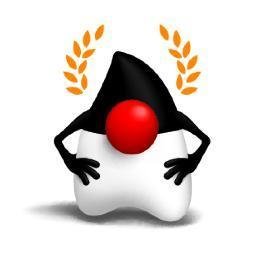


@_tamanm
|
|
|
Mohamed Taman
Chief Solutions Architect
CEO @SiriusXI | Java Champion | Oracle ACE | Jakarta EE Ambassador Author | trainer | speaker.
Publications
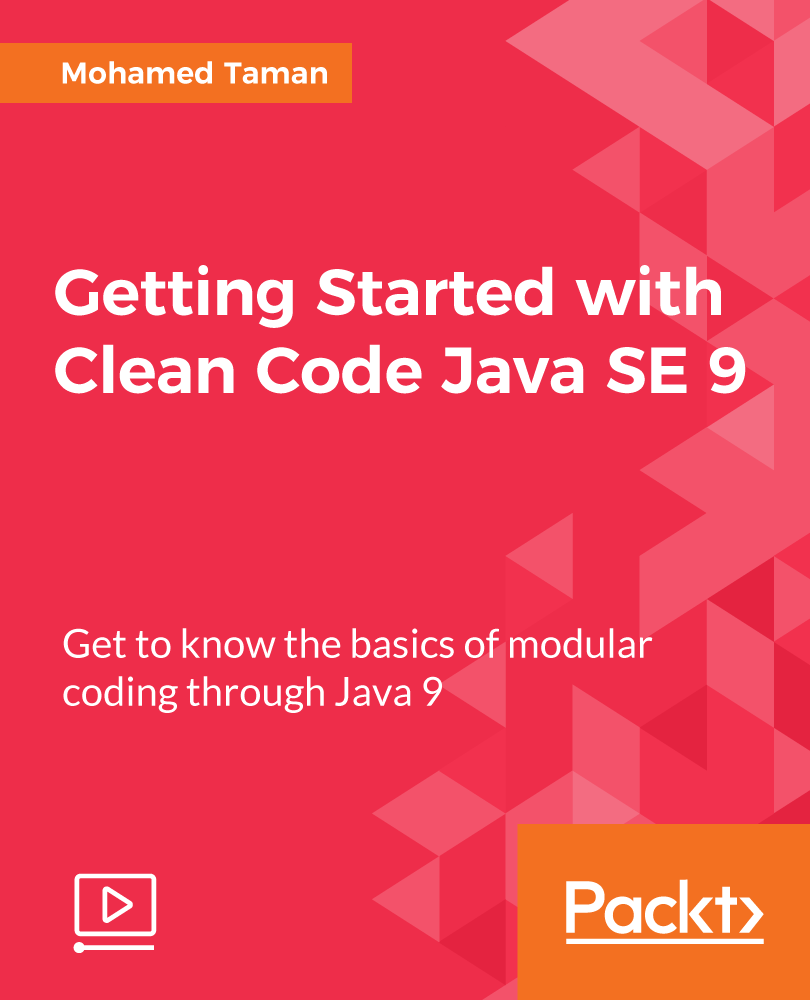

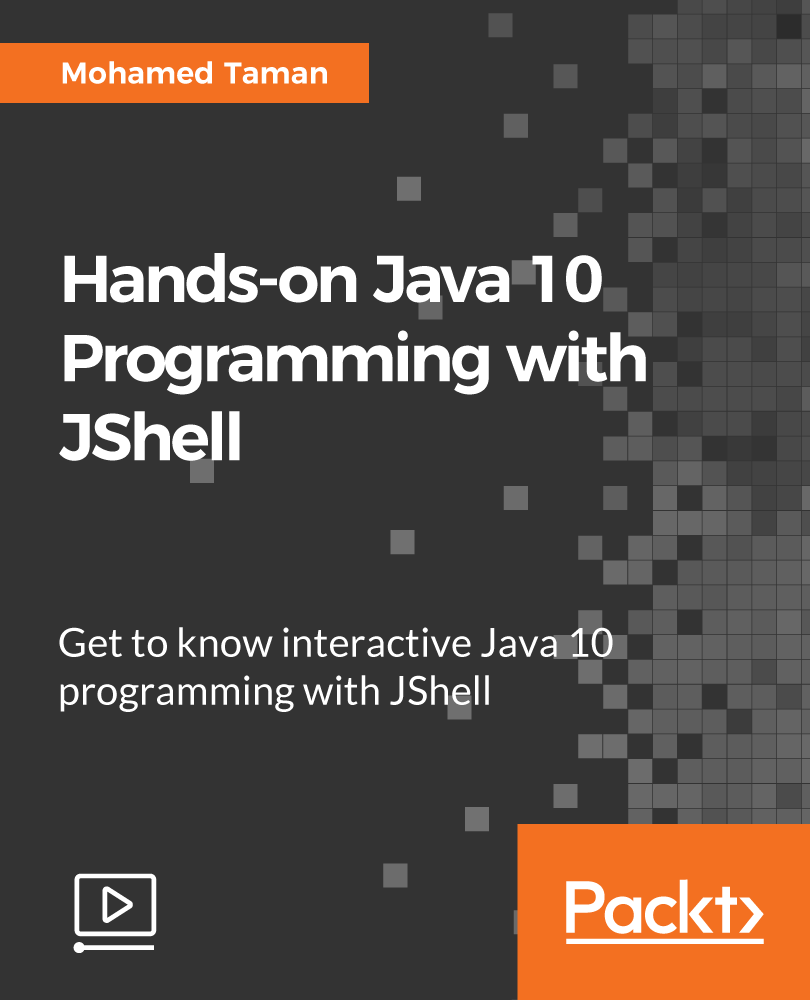

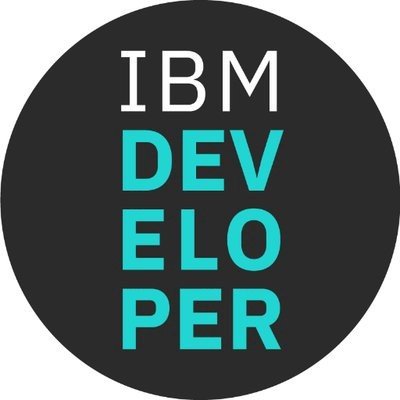



You can catch me (🤝)
Here 👇
Or by googling 🕵 me
"Mohamed Taman"
Agenda



@_tamanm
|
|
- Explore new Language Features.
➥
- Explore the new & Improved language APIs.
➥
- Farewell to APIs has gone forever.
➥
- Learn about new Tools & JVM.
➥
- Check out Java's Important Features.
➥



@_tamanm
|
|
What is the Relation between JDK 16 and 17 LTS?
JDK 16 is a feature release backed by just six months of support from Oracle.
JDK 17, due in September, will be a long-term support (LTS) release.
Oracle frames JDK16 as a starting point for migration to JDK 17, with users able to test on JDK 16 before deploying to JDK17.
- LTS releases are published every two years.
Agenda
-
Check out Java's important features!
- Explore new Language Features.
- Explore the new & Improved language APIs.
- Farewell to APIs has gone forever.
- Learn about new Tools & JVM.
➥



@_tamanm
|
|
Check out Java's important features!
features that made java sexier 🥷



@_tamanm
|
|
What behind features like
-
Preview Feature.
-
Incubator Modules.
-
Deprecation.
-
Features Marked for Removals.



@_tamanm
|
|



@_tamanm
|
|
JEP 12: Preview Features
Since JDK 12
A preview feature is:
- A new feature of the Java language ("preview language feature"), or
- A new module, package, class, interface, method, constructor, field, or enum constant in the java.* or javax.* namespace ("preview API").
- A new feature of the JVM ("preview VM feature"), or
whose design, specification, and implementation are complete, but which would benefit from a period of broad exposure and evaluation before either achieving final and permanent status in the Java SE Platform or else being refined or removed.



@_tamanm
|
|
mohamed_taman:~$ jshell --enable-previewmohamed_taman -- -bash
Enabling preview features during development.
When using Jshell:
When using maven:
<plugin>
<groupId>org.apache.maven.plugins</groupId>
<artifactId>maven-compiler-plugin</artifactId>
<version>${maven-compiler-plugin.version}</version>
<configuration>
<release>${java.version}</release>
<compilerArgs>
<arg>--enable-preview</arg>
</compilerArgs>
...
</configuration>
</plugin>mohamed_taman -- -bash
When using IDE:
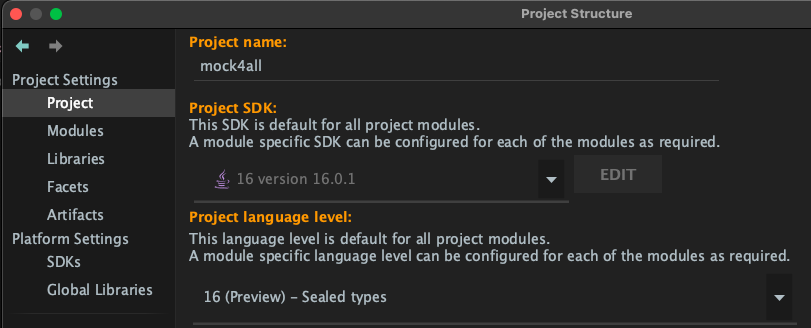



@_tamanm
|
|
JEP 11: Incubator Modules
Since JDK 9
An incubating feature is:
- An API or a tool of a non-trivial size that is under development for eventual inclusion in the Java SE Platform or the JDK.
- The API or tool is not yet sufficiently proven, so it is desirable to defer standardization or finalization for a small number of feature releases to gain additional experience and feedback.
- An incubator module: is a module in a JDK Release Project that offers an incubating feature. And is identified by the jdk.incubator—prefix in its module name.
For example, the HTTP & WebSocket client module is introduced in Java 9 under incubator module jdk.incubator.httpclient, and in Java 11, it goes to production under module java.net.http.



@_tamanm
|
|
JEP 277: Enhanced Deprecation
Since JDK 9
- Revamp the @Deprecated annotation, and provide tools to strengthen the API life cycle.
- Provide better information about the status and intended disposition of APIs in the specification.
- Provide a tool to analyze an application's static usage of deprecated APIs. By adding two methods to the java.lang.Deprecated annotation, forRemoval() returning boolean, and since() returning String.
Agenda
-
Check out Java's important features!
- Explore new Language Features.
- Explore the new & Improved language APIs.
- Farewell to APIs has gone forever.
- Learn about new Tools & JVM.
✓
➥



@_tamanm
|
|
Explore new Language Features
Java SE features that made java more concise and less verbose. 🦾



@_tamanm
|
|



@_tamanm
|
|
JEP 395: Records
1st Prev JDK 14
Final JDK 16
2nd Prev JDK 15
- It is a common complaint that "Java is too verbose" or has "too much ceremony." Some of the worst offenders are classes that are nothing more than immutable data carriers for a handful of values.
- Properly writing such a data-carrier class involves a lot of low-value, repetitive, error-prone code: constructors, accessors, equals, hashCode, toString, etc.
class Point {
private final int x;
private final int y;
Point(int x, int y) {
this.x = x;
this.y = y;
}
int x() { return x; }
int y() { return y; }
public boolean equals(Object o) {
if (!(o instanceof Point)) return false;
Point other = (Point) o;
return other.x == x && other.y == y;
}
public int hashCode() {
return Objects.hash(x, y);
}
public String toString() {
return String.format("Point[x=%d, y=%d]", x, y);
}
}- For example, a class Point to carry x and y coordinates inevitably ends up like this:



@_tamanm
|
|
JEP 395: Records
record Point(int x, int y) { }- Providing records classes that act as transparent carriers for immutable data. Records can be considered nominal tuples.
-
By reducing the ceremony of Java by cutting boilerplate code. So the Point class could be re-written as:
Constructors for record classes
- Canonical Constructor:
- Compact Constructor:
record Point(int x, int y){
Point(int x, int y){
if(x == 0 && y == 0)
throw new IllegalArgumentException(String.format("(%d,%d)", x, y));
this.x = x;
this.y = y;
}
}record Point(int x, int y){
Point{
if(x == 0 && y == 0)
throw new IllegalArgumentException (String.format("(%d,%d)", x, y));
}
}List<Merchant> findTopMerchants(List<Merchant> merchants, int month) {
// Local record
record MerchantSales(Merchant merchant, double sales) {}
return merchants.stream()
.map(merchant -> new MerchantSales(merchant, computeSales(merchant, month)))
.sorted((m1, m2) -> Double.compare(m2.sales(), m1.sales()))
.map(MerchantSales::merchant)
.collect(toList());
}Local Record Classes
Continue



@_tamanm
|
|
JEP 394: Pattern Matching for instanceof
1st Prev JDK 14
Final JDK 16
2nd Prev JDK 15
- Pattern matching allows common logic in a program, namely the conditional extraction of components from objects, to be expressed more concisely and safely.
- The use of pattern matching in instanceof should significantly reduce the overall number of explicit casts in Java programs. Consider the following equals() methods:
public boolean equals(Object o) {
return (o instanceof CaseInsensitiveString) &&
((CaseInsensitiveString) o).s.equalsIgnoreCase(s);
}public boolean equals(Object o) {
return (o instanceof CaseInsensitiveString cis) &&
cis.s.equalsIgnoreCase(s);
}public boolean equals(Object o) {
if (!(o instanceof Point))
return false;
Point other = (Point) o;
return x == other.x
&& y == other.y;
}public boolean equals(Object o) {
return (o instanceof Point other)
&& x == other.x
&& y == other.y;
}


@_tamanm
|
|
JEP 406: Pattern Matching for switch (Preview)
1st Prev JDK 17
- Enhance the Java programming language with pattern matching for switch expressions and statements, along with extensions to the language of patterns.
- Extending pattern matching to switch allows an expression to be tested against a number of patterns, each with a specific action, so that complex data-oriented queries can be expressed concisely and safely.
static String formatter(Object o) {
String formatted = "unknown";
if (o instanceof Integer i) {
formatted = String.format("int %d", i);
} else if (o instanceof Long l) {
formatted = String.format("long %d", l);
} else if (o instanceof Double d) {
formatted = String.format("double %f", d);
} else if (o instanceof String s) {
formatted = String.format("String %s", s);
}
return formatted;
}static String formatterPatternSwitch(Object o) {
return switch (o) {
case Integer i -> String.format("int %d", i);
case Long l -> String.format("long %d", l);
case Double d -> String.format("double %f", d);
case String s -> String.format("String %s", s);
default -> o.toString();
};
}


@_tamanm
|
|
JEP 406: Pattern Matching for switch (Preview)
Continue
Pattern matching and null
We may wish to handle null in the same way as another case label. For example:
static void testFooBar(String s) {
if (s == null) {
System.out.println("oops!");
return;
}
switch (s) {
case "Foo", "Bar" -> System.out.println("Great");
default -> System.out.println("Ok");
}
}static void testFooBar(String s) {
switch (s) {
case null -> System.out.println("Oops");
case "Foo", "Bar" -> System.out.println("Great");
default -> System.out.println("Ok");
}
}
static void testStringOrNull(Object o) {
switch (o) {
case null, String s -> System.out.println("String: " + s);
}
}
Working with Sealed types
sealed interface S permits A, B, C {}
final class A implements S {}
final class B implements S {}
record C(int i) implements S {} // Implicitly final
static int testSealedCoverage(S s) {
return switch (s) {
case A a -> 1;
case B b -> 2;
case C c -> 3;
};
}


@_tamanm
|
|
JEP 409: Sealed Classes
1st Prev JDK 15
Final JDK 17
2nd Prev JDK 16
- Sealed classes and interfaces restrict which other classes and interfaces may extend or implement them. Therefore they can be extended or implemented only by those classes and interfaces permitted to do so.
- Allow the author of a class or interface to control the code responsible for implementing it.
package com.example.geometry;
public abstract sealed class Shape
permits Circle, Rectangle, Square, WeirdShape { ... }
public final class Circle extends Shape { ... }
public sealed class Rectangle extends Shape
permits TransparentRectangle, FilledRectangle { ... }
public final class TransparentRectangle extends Rectangle { ... }
public final class FilledRectangle extends Rectangle { ... }
public final class Square extends Shape { ... }
public non-sealed class WeirdShape extends Shape { ... }- Provide a more declarative way than access modifiers to restrict the use of a superclass.
- Support future directions in pattern matching by providing a foundation for analysis of patterns.
A class is sealed by applying the sealed modifier to its declaration. Then, after any extends and implements clauses, the permits clause specifies the classes permitted to extend the sealed class.



@_tamanm
|
|
JEP 409: Sealed Classes
1st Prev JDK 15
Final JDK 17
2nd Prev JDK 16
Here is another classic example of a class hierarchy with a known set of subclasses: modeling mathematical expressions.
Sealed classes work well with record classes. Record classes are implicitly final, so a sealed hierarchy of record classes is slightly more concise than the example above:
package com.example.expression;
public sealed interface Expr
permits ConstantExpr, PlusExpr, TimesExpr, NegExpr { ... }
public final class ConstantExpr implements Expr { ... }
public final class PlusExpr implements Expr { ... }
public final class TimesExpr implements Expr { ... }
public final class NegExpr implements Expr { ... }package com.example.expression;
public sealed interface Expr
permits ConstantExpr, PlusExpr, TimesExpr, NegExpr { ... }
public record ConstantExpr(int i) implements Expr { ... }
public record PlusExpr(Expr a, Expr b) implements Expr { ... }
public record TimesExpr(Expr a, Expr b) implements Expr { ... }
public record NegExpr(Expr e) implements Expr { ... }Sealing and record classes
The combination of sealed classes and record classes is sometimes referred to as algebraic data types: Record classes allow us to express product types, and sealed classes allow us to express sum types.



@_tamanm
|
|
C-Style Array Declarations Are Not Allowed in Record Components
JDK-8250629
Final JDK 16
Before JDK 16, the javac compiler accepted C-style array declarations in record components. In particular, the compiler had accepted code such as:
This code is no longer acceptable according to the JLS specification for JDK 16:
record R(int i[]) {}jshell> record R(int i[]) {}
| Error:
| legacy array notation not allowed on record components
| record R(int i[]) {}
| ^mohamed_taman -- -bash



@_tamanm
|
|
Annotation Interfaces May Not Be Declared As Local Interfaces
JDK-8250741
Final JDK 16
Before JDK 16, the javac compiler accepted annotations declared as local interfaces. For example, the javac compiler had accepted code such as:
This code is no longer acceptable according to Section [14.3] of the JLS 16: "A local interface may be a normal interface (§9.1), but not an annotation interface (§9.6)."
class C {
void m() {
@interface A {}
}
}jshell> class C {
...> void m() {
...> @interface A {}
...> }
...> }
| Error:
| annotation type declaration not allowed here
| @interface A {}
| ^-------------^mohamed_taman -- -bash
Agenda
-
Check out Java's important features!
- Explore new Language Features.
- Explore the new & Improved language APIs.
- Farewell to APIs has gone forever.
- Learn about new Tools & JVM.
✓
➥
✓



@_tamanm
|
|
Explore the new & Improved language APIs
Java SE API features that enrich the language. 🪙



@_tamanm
|
|



@_tamanm
|
|
Day Period Support Added to java.time Formats
JDK-8247781
Final JDK 16
- A new formatter pattern, letter 'B', and its supporting method have been added to java.time.format.DateTimeFormatter/DateTimeFormatterBuilder classes.
- Applications can now express periods in a day, such as "in the morning" or "at night," not just am/pm.
[mtaman]:~ ~~ jshell --enable-preview
| Welcome to JShell -- Version 17-ea
| For an introduction type: /help intro
jshell> import java.time.format.DateTimeFormatter
jshell> import java.time.LocalTime
jshell> DateTimeFormatter.ofPattern("B").format(LocalTime.now())
$3 ==> "at night"mohamed_taman -- -bash
The following example translating the day periods, and produces day period text depending on the time of the day and locale:



@_tamanm
|
|
Add Stream.toList() Method
JDK-8180352
Final JDK 16
-
Since its introduction in Java 8, the Stream API was blamed for its verboseness. For example, performing a simple mapping transformation on a list requires writing as much as:
- With the new edition, you can now write shorter, clearer code such as:
However, this is not just a simple shortcut. Why?
- While the specification does not guarantee it, collect(toList()) produces a mutable list and many users already rely on this fact. The new method, Stream.toList(), produces an unmodifiable list. It also is not a shortcut to collect(toUnmodifiableList()) either, because toUnmodifiableList() doesn’t accept nulls.
- the implementation of Stream.toList() is not constrained by the Collector interface.
- As a result, Stream.toList() is more optimal and allocates less memory, especially if the stream size is known in advance.
list.stream().map(fn).collect(Collectors.toList())list.stream().map(fn).toList()


@_tamanm
|
|
JEP 390: Warnings for Value-Based Classes
Final JDK 16
- Designate the primitive wrapper classes as value-based and deprecate their constructors for removal, prompting new deprecation warnings. Provide warnings about improper attempts to synchronize on instances of any value-based classes in the Java Platform.
- The Valhalla Project is pursuing a significant enhancement to the Java programming model in the form of primitive classes.
jshell> Integer x = new Integer("12")
| Warning:
| Integer(java.lang.String) in java.lang.Integer has been deprecated and marked for removal
| Integer x = new Integer("12");
| ^---------------^
x ==> 12
jshell> Integer x = new Integer(12)
| Warning:
| Integer(int) in java.lang.Integer has been deprecated and marked for removal
| Integer x = new Integer(12);
| ^-------------^
x ==> 12
jshell> Integer x = 12
x ==> 12mohamed_taman -- -bash
When running on a future Java release in which the migration has occurred:
- Attempts to synchronize on instances of these classes will produce exceptions.
- Attempts to create wrapper class instances with new Integer, etc., rather than implicit boxing or calls to the valueOf() factory methods, will produce LinkageErrors.
- Instances of these classes that are equal (per equals()) may also be considered identical (per ==).
- Such classes declare their instances to be identity-free and capable of inline or flattened representations, where instances can be copied freely between memory locations and encoded using solely the values of the instances' fields.



@_tamanm
|
|
JEP 380: Unix-Domain Socket Channels
Final JDK 16
- Add Unix-domain (AF_UNIX) socket support to the socket channel and server-socket channel APIs in the java.nio.channels package.
- Unix-domain sockets are used for inter-process communication (IPC) on the same host. They are similar to TCP/IP sockets in most respects, except that they are addressed by filesystem pathnames rather than Internet Protocol (IP) addresses and port numbers.
To support Unix-domain socket channels, the following API elements have been added:
- New open factory methods on SocketChannel and ServerSocketChannel that specify the protocol family.
- A UNIX constant value in the existing java.net.StandardProtocolFamily enum.
- A new socket address class, java.net.UnixDomainSocketAddress
- For local, inter-process communication, Unix-domain sockets are both more secure and more efficient than TCP/IP loopback connections.
- Updates to the SocketChannel and ServerSocketChannel specifications to specify how channels to Unix domain sockets behave.



@_tamanm
|
|
JEP 396: Strongly Encapsulate JDK Internals by Default
Final JDK 16
- Strong encapsulation of JDK internals by default, except for critical internal APIs such as misc.Unsafe. Users can choose the relaxed strong encapsulation that has been the default since JDK 9.
- Relaxed strong encapsulation is controlled by the launcher option --illegal-access. In JDK 16 the default is --illegal-access=deny not --illegal-access=permit as it was since JDK 9.
Goals of this proposal include:
- Developers can use an existing release, such as JDK 11, to test existing code by using --illegal-access=warn to identify internal elements accessed via reflection, using --illegal-access=debug to pinpoint errant code, and testing with --illegal-access=deny.
- This proposal does carry a primary risk that existing Java code will fail to run. Developers are encouraged to use the jdeps tool to identify code that depends on internal elements of the JDK and switch to standard replacements when available.
- Improving the security and maintainability of the JDK, as part of Project Jigsaw, and encouraging developers to migrate from using internal elements to using standard APIs so that both developers and end users can update easily to future Java releases.



@_tamanm
|
|
JEP 357: Migrate from Mercurial to Git
Final JDK 16
- Migration of OpenJDK source code repositories from Mercurial to Git. Driving this effort are advantages in version control system metadata size and available tools and hosting.
- Migration to GitHub, related to the Mercurial-to-Git migration, with JDK 16 source code repositories to be on the popular code-sharing site.
JEP 369: Migrate to GitHub
- JDK feature releases and JDK update releases for Java 11 and later would be part of this plan.
- The transition to Git, GitHub, and Skara for the Mercurial JDK and JDK-sandbox was done on September 5 and is open for contributions.



@_tamanm
|
|
JEP 389: Foreign Linker API (Incubator)
JDK 16
- Introduce an API (jdk.incubator.foreign) that offers statically-typed, pure-Java access to native code.
- Foreign linker API, together with the Foreign-Memory API (JEP 393), will considerably simplify the otherwise error-prone process of binding to a native library.
Goals of this proposal include:
- Generality: The Foreign Linker API and implementation should be flexible enough to, over time, accommodate support for other platforms (e.g., 32-bit x86) and foreign functions written in languages other than C (e.g. C++, Fortran).
- C support: The initial scope of this effort aims at providing high quality, fully optimized interoperability with C libraries, on x64 and AArch64 platforms.
- Ease of use: Replace JNI with a superior pure-Java development model.
- Performance: The Foreign Linker API should provide performance that is comparable to, or better than, JNI.



@_tamanm
|
|
JEP 393: Foreign-Memory Access API (Third Incubator)
JDK 16
- A foreign-memory access API, allowing Java programs to safely access foreign memory outside the Java heap.
- Changes have been made including a clearer separation of roles between the MemorySegment and MemoryAddresses interfaces.
Goals of this proposal include:
- Control: Allow clients to deallocate memory segments: either explicitly (via a method call) or implicitly (when the segment is no longer in use).
- Safety: It should not be possible for the API to undermine the safety of the JVM, regardless of the kind of memory being operated upon.
- Generality: A single API should be able to operate on various kinds of foreign memory (e.g., native memory, persistent memory, managed heap memory, etc.).
1st Inc. JDK 14
2nd inc. JDK 15
- Usability: To provide a compelling alternative API to legacy Java APIs such as sun.misc.Unsafe, for programs that need to access foreign memory.



@_tamanm
|
|
JEP 414: Vector API (Second Incubator)
JDK 17
- Introduce an API to express vector computations that reliably compile at runtime to optimal vector instructions on supported CPU architectures, thus achieving performance superior to equivalent scalar computations. And it is fitted with an incubator module, jdk.incubator.vector.
- The vector API provides a mechanism to write complex vector algorithms in Java, using pre-existing support in the HotSpot VM for vectorization but with a user model that makes vectorization more predictable and robust.
Goals of this proposal include:
- Graceful degradation: A vector computation would degrade gracefully and still function if it cannot be fully expressed at runtime as a sequence of hardware vector instructions, either because architecture does not support some instructions or another CPU architecture not supported.
- Being platform-agnostic by supporting multiple CPU architectures and offering reliable runtime compilation and performance on x64 and AArch64 architectures.
- Providing a clear and concise API to express a range of vector computations.
1st Inc. JDK 16



@_tamanm
|
|
JEP 387: Elastic Metaspace
Final JDK 16
- An elastic metaspace capability, which returns unused HotSpot VM class metadata (metaspace) memory more promptly to the OS, reduces metaspace footprint and simplifies metaspace code to reduce maintenance costs.
- Metaspace has had issues with high off-heap memory use.
Goals of this proposal include:
- The commitment of memory from the OS to memory management arenas will be done lazily, on-demand, to reduce the footprint for loaders that start with large arenas but do not use them immediately or might not use them to their full extent.
- This approach has been used in places such as the Linux kernel and will make it practical to allocate memory in smaller chunks to reduce class-loader overhead. Fragmentation also will be reduced.
- Replacing the existing memory allocator with a buddy-based allocation scheme, providing an algorithm to divide memory into partitions to satisfy memory requests.
- To fully exploit the elasticity offered by buddy allocation, metaspace memory will be arranged into uniformly sized granules that can be committed and uncommitted independently of each other.
Agenda
-
Check out Java's important features!
- Explore new Language Features.
- Explore the new & Improved language APIs.
- Farewell to APIs has gone forever.
- Learn about new Tools & JVM.
✓
➥
✓
✓



@_tamanm
|
|
Farewell to APIs has gone forever
Removed Java SE features that made Java slow to scale and making it cleaner. 👋👋🏻👋🏽



@_tamanm
|
|
New things come ... and sometimes old things have to go ...



@_tamanm
|
|
JEP 407: Remove RMI Activation
Final JDK 17
- Remove the Remote Method Invocation (RMI) Activation mechanism, while preserving the rest of RMI.
- The RMI Activation mechanism is obsolete. It was deprecated for removal by JEP 385 in Java SE 15.
- The Java EE Platform contained a technology called the JavaBeans Activation Framework (JAF). This was later renamed to Jakarta Activation as part of the Eclipse EE4J initiative.
- The JavaBeans Activation and Jakarta Activation technologies are completely unrelated to RMI Activation, and they are unaffected by the removal of RMI Activation from Java SE.



@_tamanm
|
|
JEP 398: Deprecate the Applet API for Removal
Final JDK 17
- Deprecate the Applet API for removal. It is essentially irrelevant since all web-browser vendors have either removed support for Java browser plug-ins or announced plans to do so.
- The Applet API was previously deprecated, though not for removal, by JEP 289 in Java 9.



@_tamanm
|
|
JEP 410: Remove the Experimental AOT and JIT Compiler
Final JDK 17
- Remove the experimental Java-based ahead-of-time (AOT) and just-in-time (JIT) compiler.
- This compiler has seen little use since its introduction, and the effort required to maintain it is significant. These features were not included in the JDK 16 builds published by Oracle.
- Retain the experimental Java-level JVM compiler interface (JVMCI) so that developers can continue to use externally-built versions of the compiler for JIT compilation.
- Developers who wish to use the Graal compiler for either AOT or JIT compilation can use GraalVM.



@_tamanm
|
|
Significant Removal and Deprecation
Final JDK 16
- JDK-8202343: Disable TLS 1.0 and 1.1 (versions of the TLS protocol that are no longer considered secure and have been superseded by more secure and modern versions (TLS 1.2 and 1.3))
- JDK-8243559: Removed Root Certificates with 1024-bit Keys (root certificates with weak 1024-bit RSA public keys have been removed from the cacerts keystore)
- JDK-8235710: Removal of Legacy Elliptic Curves (The SunEC provider no longer supports the following elliptic curves that are either obsolete or not implemented using modern formulas and techniques. To continue using any of these curves, users must find third-party alternatives.)
- JDK-8257572: Parts of the Signal-Chaining API Are Deprecated (The signal-chaining facility was introduced in JDK 1.4 and supported three different Linux signal-handling API's: sigset, signal and sigaction. Only sigaction is a cross-platform, supported, API for multi-threaded processes. Both signal and sigset are considered obsolete on those platforms that still define them. Consequently, the use of signal and sigset with the signal-chaining facility is now deprecated, and support for their use will be removed in a future release.)



@_tamanm
|
|
Significant Removal and Deprecation
- JDK-8256643: Terminally Deprecated ThreadGroup stop, destroy, isDestroyed, setDaemon and isDaemon (is inherently unsafe and has been deprecated since Java 1.2. The method is now terminally deprecated and will be removed in a future release.)
- JDK-8256718: Deprecated Tracing Flags Are Obsolete and Must Be Replaced With Unified Logging Equivalents (When Unified Logging was added in Java 9, several tracing flags were deprecated and mapped to their unified logging equivalent. These flags are now obsolete. To continue getting the same logging output, you must explicitly replace these flags with their unified logging equivalent.)
| Obsoleted Option |
Unified Logging |
| -XX:+TraceClassLoading | -Xlog:class+load=info |
| -XX:+TraceClassUnloading | -Xlog:class+unload=info |
| -XX:+TraceExceptions | -Xlog:exceptions=info |
Final JDK 16
Agenda
-
Check out Java's important features!
- Explore new Language Features.
- Explore most of the new & Improved APIs.
- Farewell to APIs has gone forever.
- Learn about new Tools & JVM.
✓
➥
✓
✓
✓



@_tamanm
|
|
Learn about new Java Tools
Java SE tools that made the language more productive. 🧑💻



@_tamanm
|
|



@_tamanm
|
|
JEP 392: Packaging Tool
Final JDK 16
- Provide the jpackage tool for packaging self-contained Java applications.
-
Supports native packaging formats to give end-users a natural installation experience. These formats include:
- msi and exe on Windows,
- pkg, and dmg on macOS, and
- deb and rpm on Linux.
- By default, jpackage produces a package in the format most appropriate for the system on which it is run.
Suppose you have an application composed of JAR files, all in a directory named lib, and that lib/main.jar contains the main class. Then the command:
[mtaman]:~ ~~ jpackage --name myapp --input lib --main-jar main.jarmohamed_taman -- -bash
--main-class myapp.Main
--type pkg



@_tamanm
|
|
JEP 386: Alpine Linux Port
Final JDK 16
- The Alpine Linux distribution is widely adopted in cloud deployments, microservices, and container environments due to its small image size, which is less than 6 MB. That applies to embedded system deployments as well, which are constrained by size.
- This JEP ports the JDK to Alpine Linux, and to other Linux distributions that use musl as their primary C library, on both the x64 and AArch64 architectures.
- It will revolutionize the running of Java applications in such an environment as native applications.
- Using the jlink linker, developers can cut down the Java application runtime environment size with only the required modules to run their application. Thus, the user could create a tiny image targeted to run a specific application.



@_tamanm
|
|
JEP 388: Windows/AArch64 Port
Final JDK 16
- With the release of new consumer and server-class AArch64 (ARM64) hardware, Windows/AArch64 has become an important platform due to end-user demand.
- The JDK is ported to Windows/AArch64 by extending the work previously done for the Linux/AArch64 port (JEP 237). It supports both the Windows 10 and Windows Server 2016 operating systems.



@_tamanm
|
|
JEP 391: macOS/AArch64 Port
Final JDK 17
- Apple has announced a long-term plan to transition their line of Macintosh computers from x64 to AArch64. there will be a broad demand for a macOS/AArch64 port.
- It accommodates differences in low-level conventions such as the application binary interface (ABI) and the set of reserved processor registers.
- It implements W^X support in HotSpot for macOS/AArch64 (forbids memory segments from being executable and writeable at the same time, a policy known as write-xor-execute (W^X)).
Agenda
-
Check out Java's important features!
- Explore new Language Features.
- Explore most of the new & Improved APIs.
- Farewell to APIs has gone forever.
- Learn about new Tools & JVM.
✓
✓
✓
✓



@_tamanm
|
|
✓
Questions?
Thanks for listening! 🧡



@_tamanm
|
|